Amending the Law on Value Added Tax: Reassessing the impact of each policy
Faced with many concerns from National Assembly delegates, Minister of Finance Ho Duc Phoc said he would re-evaluate the impact of each policy in the Draft Law on Value Added Tax (Draft).
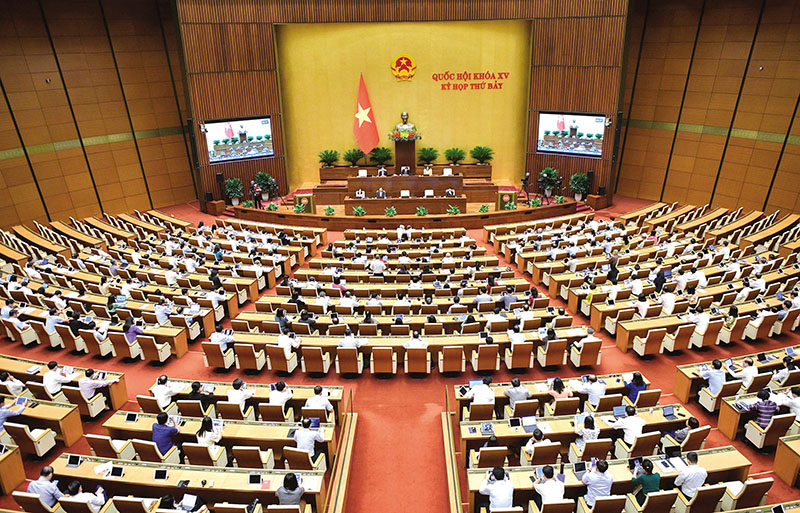 |
| Overview of the discussion session on the Draft Law on Value Added Tax (amended) |
Worry about farmers suffering losses
Discussing the Draft in the hall on the first day of this week, many National Assembly deputies shared concerns about the regulation of transferring fertilizers, supplies, machinery, specialized equipment for agricultural production, and offshore fishing vessels from non-VAT subjects to taxable subjects with a tax rate of 5%.
One of the reasons for proposing to put fertilizers under the 5% tax rate explained by the Drafting Committee is to reduce fertilizer prices.
However, according to delegate Hoang Van Cuong ( Hanoi ), member of the National Assembly's Finance and Budget Committee, this reason is not convincing.
Mr. Cuong cited the Ministry of Finance's assessment report, pointing out that from January 2015 to 2017, fertilizer prices continuously decreased after the tax rate was changed from 5% to 0%. It was not until 2018 that fertilizer prices began to increase, because the Phu My Fertilizer Plant was not operating at full capacity. By 2022, the price of this item increased sharply, due to the Russia-Ukraine war.
“Therefore, there is no reason to increase taxes while potentially reducing prices,” Mr. Cuong asserted.
According to delegate Cuong, it cannot be said that increasing VAT on fertilizers benefits farmers. Because, according to the report of the Ministry of Finance, without VAT, fertilizer manufacturing enterprises cannot deduct about 1,500 billion VND. If there is a 5% VAT, this tax will be collected about 5,700 billion VND. Of which, the offset for enterprises is about 1,500 billion VND, the remaining budget has a profit of about 4,200 billion VND.
“So the question is, where did the 4,200 billion VND in budget revenue and 1,500 billion VND in compensation for fertilizer production enterprises come from? Obviously, this money comes from farmers, so people have to pay more. That shows the unreasonableness. Switching from not being able to deduct input from enterprises to not being able to deduct input from farmers, farmers suffer losses,” the Hanoi delegate analyzed.
From that analysis, Mr. Cuong agreed with many delegates that a 0% tax should be applied to fertilizers and fertilizer production enterprises should be refunded input VAT.
According to delegate Tran Quoc Tuan (Tra Vinh), farmers are the main subjects that will be affected by the tax increase policy on fertilizers this time, but the impact on this group has not been carefully considered, surveyed and evaluated.
“The Ministry of Finance’s report assessing the impact of the Law on Value Added Tax only mentions the positive impact of the policy on two groups of subjects. That is, domestic fertilizer production enterprises will be able to deduct taxes to create fertilizer products that are competitive with imported fertilizers and the State will have additional revenue from fertilizer import taxes. This is not complete and not convincing,” Mr. Tuan commented.
The delegate from Tra Vinh said that every time they met with voters, the National Assembly delegations in agricultural production localities, including the Mekong Delta provinces, heard farmers complain that the prices of fertilizers and agricultural materials were increasing, and asked the State to study and find solutions to manage and support them. "However, up to now, while those recommendations and concerns are still evident, the National Assembly continues to discuss adding fertilizers to the group of goods and services subject to tax at a rate of 5%. This will certainly make farmers who are already worried even more worried," said Mr. Tuan.
The proposal of the Tra Vinh delegate is not to increase the VAT rate on fertilizer products, but to add domestic fertilizer production enterprises as subjects eligible for input VAT deduction.
Sharing the same concern, delegate Tran Van Lam (Bac Giang), standing member of the National Assembly's Finance and Budget Committee, cited data from the Ministry of Finance. If a 5% tax is applied to fertilizers and some agricultural materials as in the Draft, the budget revenue will increase by 6,300 billion VND/year.
However, due to the characteristics of Vietnamese agriculture, which is mainly small-scale household production, not eligible to account for input VAT deduction, applying 5% VAT will increase the cost of agricultural products, reduce competition, and reduce the income of agriculture and farmers.
Thus, according to Mr. Lam, increasing taxes will increase businesses' competitiveness and profits, increase state budget revenue, but farmers will suffer. "We should not collect taxes from the poor to pay the rich," Mr. Lam said.
Each farming household pays an additional 461,000 VND per year.
Responding to delegates' opinions, the representative of the Drafting Committee, Minister of Finance Ho Duc Phoc said that currently, domestic fertilizer production meets 73.3% of market demand, while imports account for 26.7% (about 4 million tons/year).
According to Mr. Phuc, the proposal to impose a 5% tax on fertilizers also affects businesses through tax refunds, creating a resource for businesses to innovate technology, reduce product costs and develop sustainably.
This is a tax law related to 25% of the budget revenue, related to all subjects, so I think, there needs to be a truly neutral and objective tax to build a truly strong financial foundation.
I suggest that we must be very calm when evaluating the issues proposed by the Government. I think that the Government's proposal to impose a 5% tax on fertilizers and agricultural products is well-founded and must be evaluated from many perspectives to avoid people watching and evaluating the National Assembly and the Government's policies that have caused damage to millions of people. We need to be very calm so that we can analyze thoroughly.
– Delegate Trinh Xuan An, Standing Member of the National Assembly's Defense and Security Committee
“Thus, if we calculate the tax refund for businesses at 1,500 billion VND, then there is 4,200 billion VND that will affect 9.1 million people. We also calculate that each farming household will pay an additional 461,000 VND per year, and 38,000 VND per month,” the Minister of Finance stated the specific figure.
According to the Minister, it is not necessarily true that agriculture is negatively affected, because it can also be affected by supply and demand. If supply increases, prices will fall; if supply is low, prices will rise.
"We will re-evaluate the impact of this issue to present to the National Assembly at the session at the end of this year," Mr. Phoc replied to the delegate.
In addition to fertilizer products, some delegates also discussed the threshold of non-taxable revenue. According to the current Law on Value Added Tax, goods and services of households and individuals with annual revenue of 100 million VND or less are not subject to tax. The draft stipulates an annual revenue level below the level prescribed by the Government.
Delegate Tran Thi Thu Hang (Dak Nong) proposed to study and clearly stipulate the minimum annual revenue level and assign the Government to regulate from that minimum level upwards. In particular, it is noted that the adjustment of revenue levels of goods and services of individuals and business households must be consistent with price fluctuations and production and business situations.
According to delegate Hoang Thi Thanh Thuy (Tay Ninh), it is necessary to clearly stipulate the minimum taxable revenue in the law, because the Constitution stipulates that state budget revenues and expenditures must be estimated and regulated by law. "Determining VAT revenue will also affect the collection of central state budget and local budgets," Ms. Thuy emphasized.
Agreeing with the above viewpoint, delegate Trinh Xuan An (Dong Nai) said, the Draft Regulation assigns the Government to determine and take the family deduction level of the Personal Income Tax Law to calculate the minimum level of about 150 million VND to be subject to VAT.
Mr. An said that if it cannot be regulated in the Draft, there should be criteria to determine the minimum taxable revenue, which can be taken from the family deduction of the upcoming Personal Income Tax Law to apply the minimum revenue. "This very important issue should not be regulated under the law," Mr. An said.
Decentralization to the Government is extremely important and ensures flexibility and efficiency in the management process, Minister Phoc responded. Accordingly, based on inflation factors, balanced calculations with the increase in the Consumer Price Index (CPI)..., the Government will issue a decree regulating the minimum taxable revenue level.
"I think it would be more flexible if the Government were to do this," Minister Ho Duc Phoc stated his opinion.








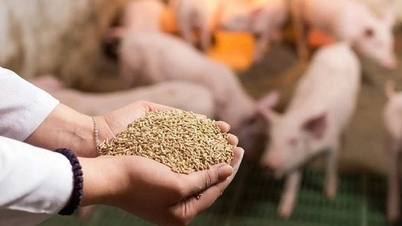



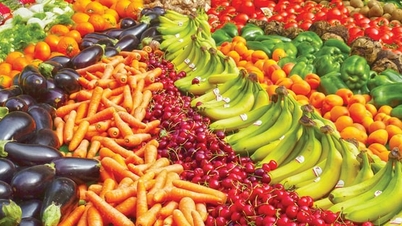


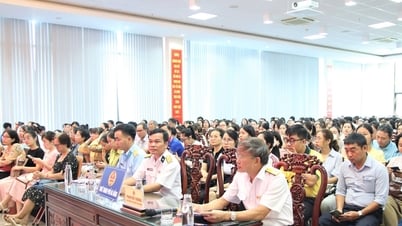

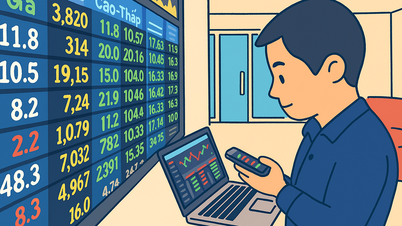








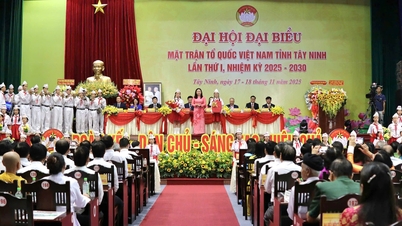














![[Photo] General Secretary To Lam and National Assembly Chairman Tran Thanh Man attend the 80th Anniversary of the Traditional Day of the Vietnamese Inspection Sector](https://vphoto.vietnam.vn/thumb/1200x675/vietnam/resource/IMAGE/2025/11/17/1763356362984_a2-bnd-7940-3561-jpg.webp)





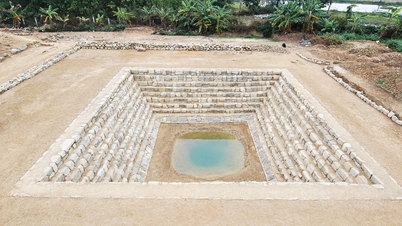

















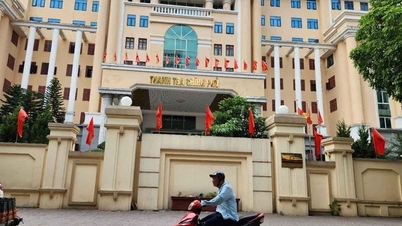






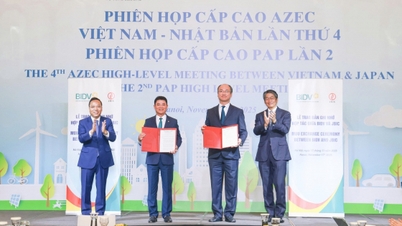














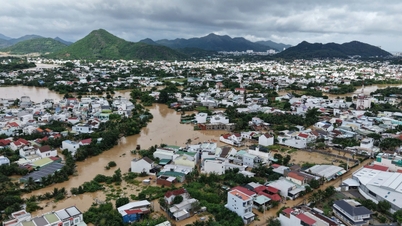


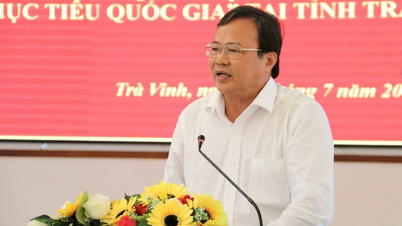








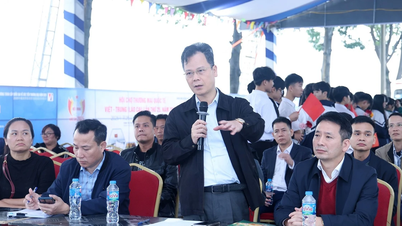


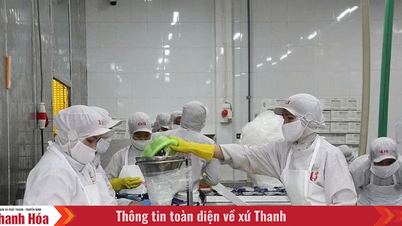













Comment (0)